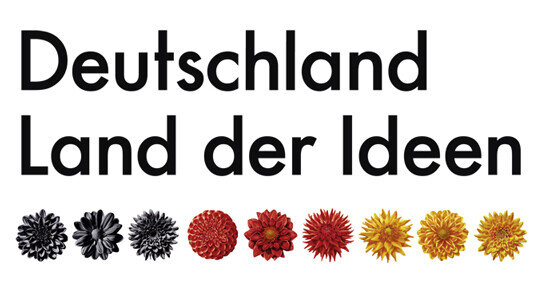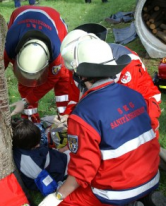An insect bite or the consumption of the wrong treat can lead to a life-threatening allergic reaction. Quick and expert assistance after appropriate training is mandatory.

EPICSAVE (www.epicsave.de), the name of a new project at the Institute for Visual Computing (IVC) at the Bonn-Rhein-Sieg University of Applied Sciences, helps with this. It is about the development of a so-called “Serious Game”, in which emergency paramedics in a virtual environment can save the life of a child in the event of an allergic shock. The Federal Ministry of Education and Research (BMBF) supports EPICSAVE for three years with a total of almost 1.7 million euros from the funding program “Promoting Digital Media in Vocational Education and Training (DIMEBB 2)”.
A child suffering an allergic reaction is the scenario that the research group around Dr Jonas Schild at the Bonn-Rein-Sieg University of Applied Sciences (H-BRS) chose to train emergency personnel in Virtual Reality (VR). “Such an emergency, which is always life-threatening,” says Schild, “requires prompt and accurate action from the paramedics, but only 0.5 per cent of the travel involved in training under real life conditions.” And with actors or simulation dolls as patients, one cannot train for the correct practical procedure.
Two components are planned in EPICSAVE. In the first case, the paramedics can play a scenario on a tablet, training for different situations. They play against time and have to react to unforeseen situations such as a power failure, equipment failure, or the surprising behavior of a game character. They act in the game as an individual, but in a different situation, they direct the entire virtual team.
In the second component, the emergency paramedics experience the situation through a VR spectacle. The experience is thus more immediate, because the VR glasses convey the feeling of being in the middle of the act, sometimes as a helper, but also as a patient. The change of perspective enhances the ability to deal with difficult situations properly. The analysis of the head and eye direction (head and eye tracking) also shows what the actor is focusing on, perhaps distracted. With this data the procedure can be optimized. The performance in the virtual environment, according to the idea, influences the progress in training.
The project partners of the IVC are the Fraunhofer Institute for Experimental Software Engineering in Kaiserslautern, the Malteser Hilfsdienst and the Academy for Emergency Medicine Hansestadt Hamburg, as well as TriCAT, one of the most successful developers of Serious Games. In addition, an expert committee accompanies the project progress. Among the members of the Advisory Board are representatives of various associations from medicine, rescue services and health insurance funds as well as experts in the field of electronic learning and the digital games world.

Progression of the Science Project
EPICSAVE was awarded with the innovation award “Excellent Place 2017”

If you have questions about EPICSAVE, ViTAWiN or i:medtasim please directly contact Dipl.-Med.-Päd. Markus Neuberger | Business unit manager Medicine/Healthcare at TriCAT | fon +49 (0) 731 1405198-0 | mobil +49 (0) 173 284 03 06 | fax +49 (0) 731 1405198-99 | email markus.neuberger@tricat.net


